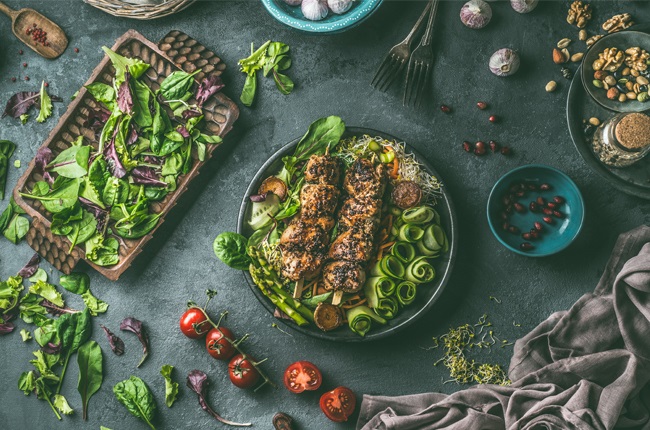Literally the only thing I take issue with this language:
The Paleo Diet has been a worthwhile experiment, but at this point it seems likely that people following it might just be wasting money. Conventional, government-recommended diets offer comparable outcomes
at a lower cost. In our view, it’s time to leave the Paleo Diet in the past.
The entirety of the article up to that point is chock full of studies and explanations, in-depth to a level appropriate for the length of the article. The issues with the above statement lie with the fact that it is the only "blanket statement" made in the whole article. Everything else had nuance of argument. If Paleo works for someone, and they enjoy it, then why should they change?
These are my two cents around diet, having grown up on the standard american diet, and having tried paleo, carnivore, keto, cyclic keto.....finally back to a omnivorous diet and feeling better than I did on carnivore/keto.
Try it. If you get the results you want, great. If not, re-evaluate and try something else.
I took just enough university courses around physiology and nutrition to know that
you need to know how studies are performed, and HOW TO READ THEM to really understand the literature. The reason articles and blogs end up kind of vague is because of this. The average person does not know what a confidence interval or P-value is, much less how biochemical processes actually work.
Why have experts at all if one is not willing to trust what they communicate? If my computer totally breaks down, and I try a few things after googling on my phone, I'm going to take my computer to someone who knows how they work. We look to trained and experienced professionals for strength and fitness training here...so why not extend that to people who research diet, physiology, or in the case of the article, human evolution?
Likewise, on the other end of the spectrum, it's all too easy to find studies online, skim them for stuff that looks like it supports what you like, and then post it to a blog proclaiming "this study says [x]." I don't like everything about Layne Norton, for example, but I DO like that he will actually take some time to break down what a study actually said. Anyone who has read a fair amount of scientific literature will know that they basically NEVER assert that something is one way and not another. They almost always say "in this case," "in populations with [x]," "supports the theory of," and the most often seen one, "further studies are needed."
While I take issue with the part I quoted, the news website is just re-posting something from another website,
The Conversation. I like that site. The articles are written by
experts and researchers in the relevant fields, not just some journalist. Articles written about economy are written by
economists, articles about climate are written by
climate scientists, just like the authors of that article (about the evidence for a "paleo" diet actualy being paleo) are a research chair in
human evolutionary studies and a PhD student in
archaeology, not some internet blog author.
My big point is just that a lot of things in the world are messy, there's a lot of (seemingly) conflicting evidence in various subjects/fields, and the answers we
want (usually some version of yes/no or right/wrong) don't actually exist.
The only thing I WILL say about the paleo diet is this: Many companies out there have capitalized on it, and sell things like "paleo granola" for nearly $10/bag, and the contents of the bag are literally only enough to fill like one average sized bowl. If you want to eat "paleo" then just eat whole foods, that's it. It's not complicated. There's nothing "paleo" about a $12 muffin mix. If you like muffins, just eat muffins, and jsut don't go nuts on them.

 www.news24.com
www.news24.com


